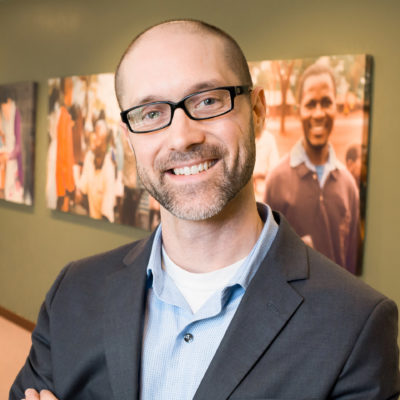
Be The Mentor Every Student Remembers
It used to frustrate me to my core. Teachers and youth leaders that always seem to have graduates come back to visit. During my first few years of teaching at various times of the year, college students would come back to visit their favorite teachers. But that isn't what bothered me. As a new teacher, there was something I didn't understand just yet. Why did students choose to come back and visit some teachers but not others? I wasn't frustrated with the other teachers; I was frustrated with myself. What would it take to be that kind of mentor to my students, that what I taught them would never leave them?
I tried being laid back and make their lives easy. Didn't work.
I tried being cool (as much as possible), so I seemed less like an adult. Didn't work.
I even tried to be their loudest advocate—even when they were wrong. But that didn’t work either.
What I began to realize is, students, don't want the adults in their lives to make life easier, or to be their friends. Students want the adults in their lives to simply be the adults in their lives. Students need to see what a normal functioning adult looks like. And not just regarding faith, but even the simple things like responsibility, obligations, emotional intelligence, and outward appearance. Mentoring is not about friendships, but it is about relationships. It is about how we, as adults, can come alongside the next generation and cultivate life-on-life mentoring.
The word cultivate is derived from the world of gardening and harvesting crops. It is what we do to the fields to get it ready for a successful growing season. But we can apply this same kind of understanding to mentoring. Cultivating essentially means to prepare the field, promote growth, and therefore produce fruit. Remember those P’s—prepare, promote, produce. So with a little help from Jeff Myers of Summit Ministries in Colorado, I worked to dial in on these three specific goals in mentoring.
Prepare. Mentor students to live their life on purpose.
Most students are naturally floating through their adolescent stage of their lives in a state of flux. They are learning at a rapid rate, taking in information as quickly as they can find it. Of course the more information, the more voices; the more voices, the greater strain on a student's discovery of self. Which is precisely why making certain, time and again, they understand that they have a purpose in life is so critical. God has provided each of our students with special and unique gifts, talents, and interests in which to live out His purpose here on earth. So often in our Christian circles, we get caught up in the salvation of our souls only to sit back and wait for heaven to arrive. In the meantime, I'll worry about being a nice person.
Instead we need to be reminded that students are on a hero’s journey, and we are their guides. Meaning it is our job not only to inspire them, challenge them, and present opportunities for them. It is also our job to train and prepare them.
Promote. Mentor students to not be afraid of Truth.
I cannot say this enough. Be honest. Be honest. Be honest. Whether you are talking about Jesus or their behavior. Speak the truth, but do it in love. Yes, they will get mad, but they will appreciate it. One of my daughters, was recently was struggling with making a new friendship work. We talked over several weeks about different ways to help foster the relationship, but at the end of the day, I had to simply just be honest with her. So sat my daughter down and very lovingly and carefully explained that this other girl she was trying so hard to be friends with just didn’t like her. Which of course opened a floodgate of new questions and hence a much longer talk. We all know that it would have been much easier to avoid it all together and do everything I could to keep the peace. But the right thing was to be honest.
Do this with students’ lives but also with the gospel. Don’t sugar coat the truth because it may offend. After all, the gospel is offensive. The truth about what Jesus demands of us is not all sunshine, rainbows, and unicorns. Truth can be harsh. But whatever you do don’t avoid it. It is the only way to consistent spiritual growth. Even if they disagree, you will garner more respect.
Produce. Mentor students to influence others.
We learn best when we teach it. Students have a greater chance of living a consistent biblical worldview when they are engaged in teaching it to someone younger. Get them involved with mentoring others. Students are never too young to start making disciples. Engaging your students in mentoring of their own will likely lower their degree of apathy, help them understand and live above reproach, and provide them chances to use leadership skills and other gifts.
But remember, you can’t just toss your students into a mentoring situation. Be sure the coach them through it. Correct them, encourage them, and celebrate success. With careful planning, you will see your students grow exponentially just by helping someone else grow.
It may not always feel like it from time to time, but consistent and frequent messaging to our students in these key areas will not only put you on their favorites list, but your students have a greater chance of living confidently by the standards of the Christian worldview. This about so much more than getting our students to like and respect us. This is about creating environments and spaces our students can be crafted into disciples who can then go and make disciples.
Steve Kozak
Executive Director of AwanaYM
Steve currently serves as the Executive Director of AwanaYM. Previously, Steve spent over a decade teaching high school theology and apologetics from Detroit to LA. Steve holds a Masters degree in Theology from Moody Theological Seminary and a Masters in Christian Apologetics from Biola University. Steve is also an adjunct professor at Trinity International University. He speaks and writes on youth ministry, youth culture and apologetics. He resides in Chicago, IL with his wife and four children.FollowSteve Kozak on Twitter: stevenmkozak
Comments
Get the AwanaYM Update
Receive youth ministry resources in your inbox. Subscribe today!
